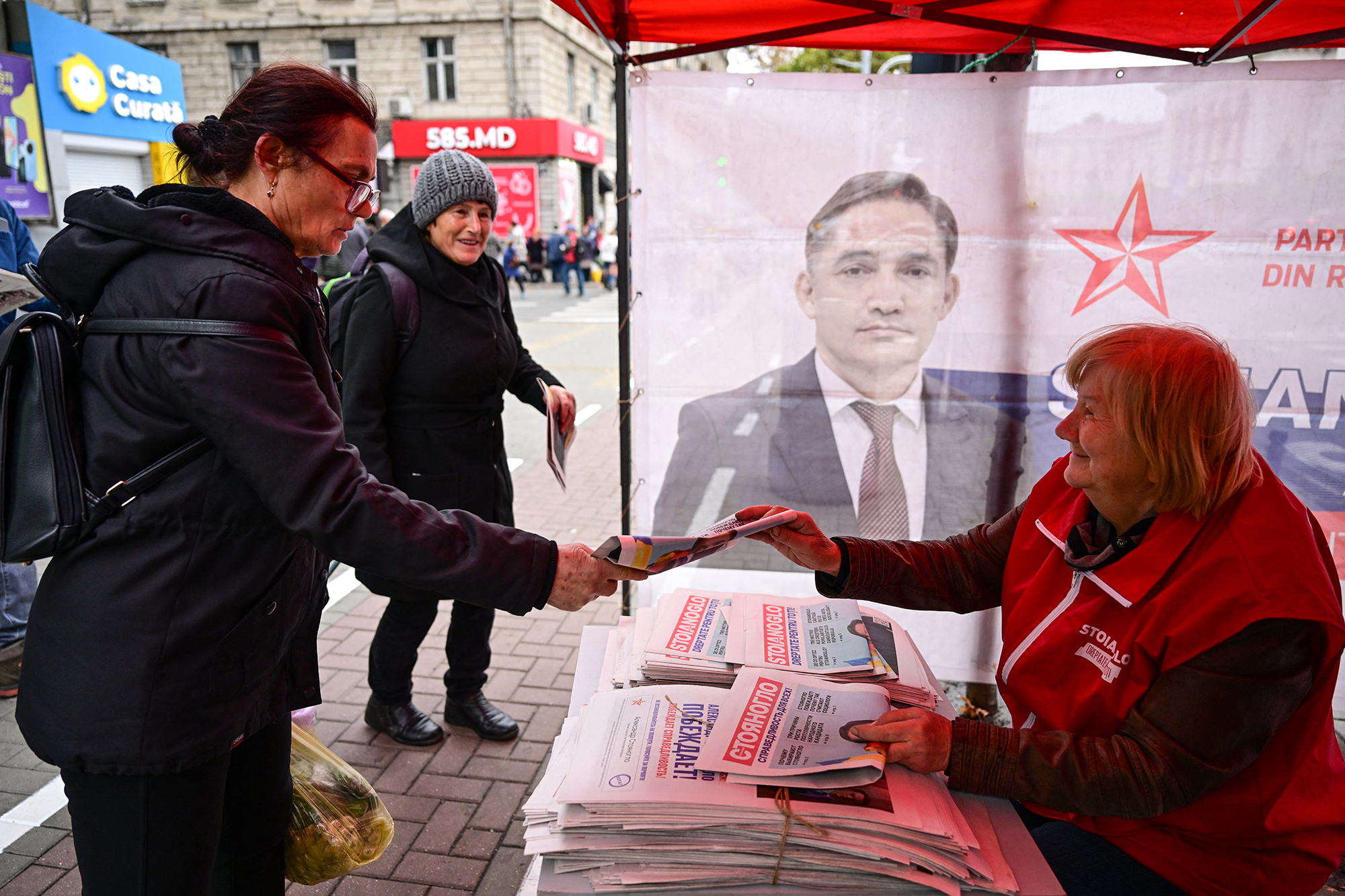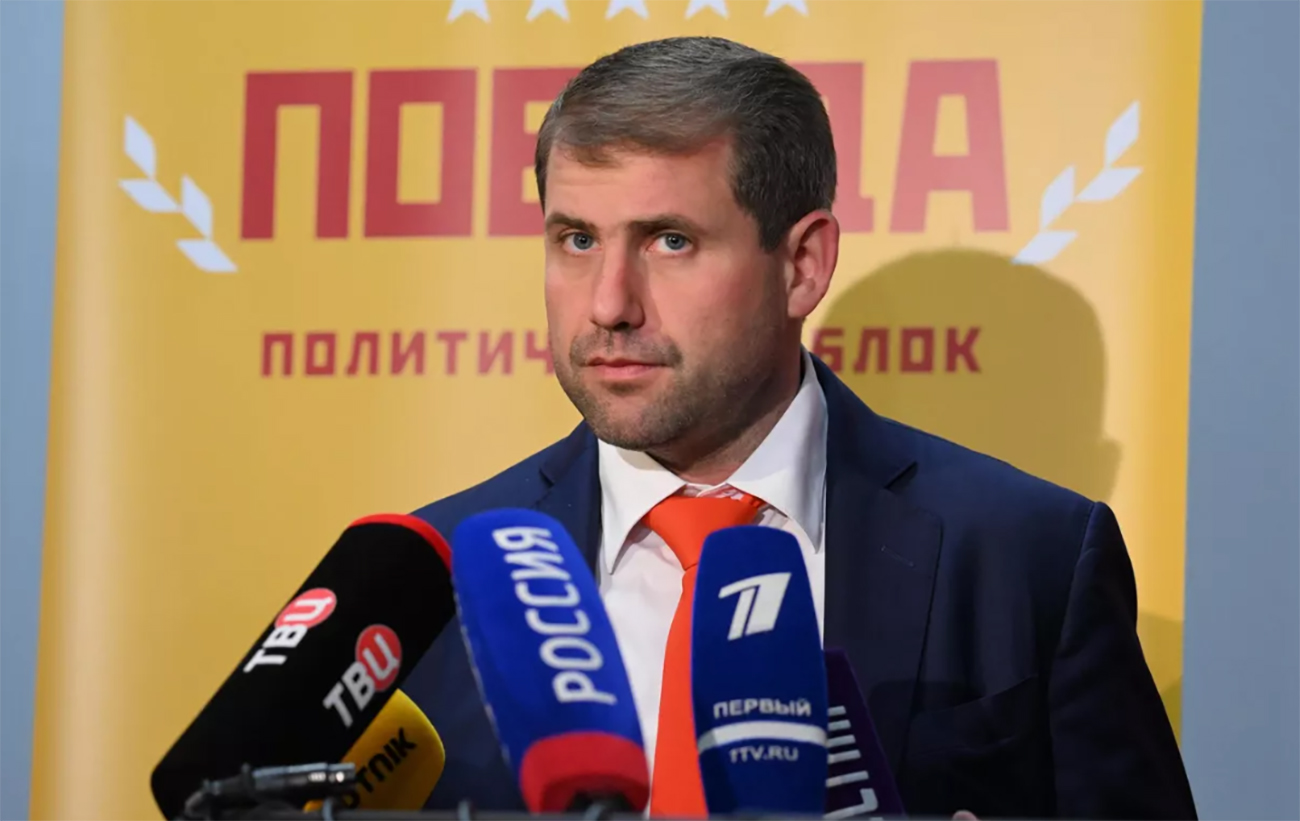Everyone is against Sandu. What can we expect from the elections in Moldova, and is a Russian comeback on the horizon?
On Sunday, October 20, presidential elections and a referendum on joining the EU will take place in Moldova. What are the candidates' chances, and what risks does a potential resurgence of pro-Russian forces pose? Read more in the article by RBK-Ukraine journalist Roman Kot.
TABLE OF CONTENTS
On September 20, Moldova will hold presidential elections, which this time carry much greater significance than usual. The results will provide an answer to a crucial question: will the Kremlin achieve another political victory on Ukraine's southern borders?
For Ukraine, a potential loss for the current pro-European president Maia Sandu would undoubtedly signal the emergence of a new problem from the south.
"This will significantly complicate interactions with the neighboring republic. It could worsen the situation regarding bilateral relations and the favorable agreements for the transit of Ukrainian goods, including by rail, through Transnistria to the southern Ukrainian ports used for exports. There will also be issues with the supply of arms to Ukraine," says Ruslan Rokhov, political analyst and managing partner at PGR Consulting Group LLC, to RBK-Ukraine.
At the same time, Ukraine receives extremely limited humanitarian aid from Moldova, and there is virtually none in terms of military support. Even the sensitive issue of the effectively Russian satellite state, the self-proclaimed Transnistria, is one that most Moldovan politicians try to avoid. However, President Maia Sandu regularly expresses her support for Ukraine in public.
One reason for such pronounced neutrality is that Moldova remains politically divided. The country is still significantly influenced either by openly pro-Russian forces or by masked Kremlin agents.
Sandu's and the opposition's plans for the elections
Overall, the pre-election situation in Moldova can be described as "Maia Sandu's race for a second term with obstacles." This is a test of trust in Moldova's pro-European leadership, as Maia Sandu has been in office since 2020. And indeed, her ratings show she has a serious chance of winning.
 Campaigning for Alexander Stoianoglo (photo: Getty Images)
Campaigning for Alexander Stoianoglo (photo: Getty Images)
According to a poll by the Aspen Institute/Watchdog Moldova on October 7, Sandu has a rating of 36.1%. In second place is the candidate from the Socialist Party, former Prosecutor General Alexander Stoianoglo, with 10.1%, followed by populist Renato Usatyi at 7.5%. Independent candidate Irina Vlah, former governor of Gagauzia (an autonomous region in southern Moldova), receives 4.1%.
All three of Sandu's main opponents have previously been linked to Russia, but they are not emphasizing that connection now.
"There is no clear pro-Kremlin narrative in this campaign, although based on the comments made by the candidates, what they promise, and their main slogans, one can judge the values they support. For instance, none of the candidates, except for Maia Sandu and Octavian Țîcu, have stated their position on the events in Ukraine. This allows us to categorize them as Putinversteher," says political analyst and former Moldovan representative to the Council of Europe and the UN, Alexei Tulbure.
Putinversteher translates from German as "those who understand Putin." This is a collective term for pro-Russian forces in Europe, from the "Alternative for Germany" to Marine Le Pen's "National Rally" in France and other far-right or far-left parties. Candidates from such political forces advocate for an unconditional peace and ceasefire, which ultimately means Ukraine's capitulation and peace on Russia's terms.
However, as polls indicate, Maia Sandu is not garnering over 50% of the votes needed for a first-round victory. This is precisely what the opposition is counting on. Pro-Russian forces have adopted a strategy of running in different columns, knowing the political realities of Moldova, where a candidate can be easily removed from the elections.
This occurred in November 2023, just two days before local elections. Moldova's Prime Minister Dorin Recean signed a decision to disqualify the "Chance" party from the elections and annul the registration of all its candidates. This political force belongs to Ilan Shor, a notorious fugitive oligarch convicted in Moldova for his role in the theft of 1 billion euros from the banking system, who is currently hiding in Moscow.
Previously, the politician led a party that bore his own name - "Shor." In the spring of last year, Moldova's Constitutional Court declared it "unconstitutional." However, Shor had purchased a backup party, "Chance," with the same symbols as "Shor." Even after the second party's disqualification, one cannot speak of Shor's ultimate defeat. He prepared substitute candidates. Thus, in Moldova's political chaos, regardless of how one feels about it, it was one of the few ways to block openly pro-Russian forces.
In the lead-up to the presidential elections, Shor attempted to promote a new candidate, Vasily Bolya, and create a third party bloc called "Victory." However, both the candidate and the party bloc were denied registration.
 Ilan Shor during the presentation of the "Victory" political bloc in Moscow (photo: Russian media)
Ilan Shor during the presentation of the "Victory" political bloc in Moscow (photo: Russian media)
"If a single candidate from the Kremlin were known, the current authorities in the Republic of Moldova would disqualify him from the elections, as happened with Vasily Bolya, who was specifically affiliated with the group of parties overseen by Ilan Shor," says Rokhov.
According to him, Ilan Shor remains the primary financier of Russia's political resurgence in Moldova. He acts as an administrator in organizing electoral networks for buying votes.
"He has over 130,000 citizens of the Republic of Moldova in his network, who receive monthly funding totaling around 15 million dollars. This does not include expenses for media, controlled Telegram channels, the work of propagandists, and campaign headquarters," says the expert.
On election day, all 130,000 are expected to vote for the candidate indicated by Shor's coordinators.
All these facts have come to light thanks to investigations by journalists and Moldovan authorities.
Thus, Maia Sandu faces a whole group of pro-Russian candidates covering most of the electoral spectrum. In the event of a second round, they are likely to unite around the one candidate who remains in the race. This candidate will most likely be Alexander Stoianoglo, the former Prosecutor General of Moldova, nominated by the Socialist Party led by pro-Russian former president Igor Dodon.
Despite having a rating of just over 10%, he has quite real chances of winning. In the second round, negative ratings play a significant role, as voters tend to vote not so much "for" as "against." On the other hand, an electoral network of 130,000 votes is a substantial number, even for large Ukraine. In much smaller Moldova, this represents about 10% of voters.
The referendum as political technology and symbol
To avoid such a trap, Maia Sandu's team is betting on winning in the first round. Her "clean" ratings do not allow her to achieve this. Therefore, one of the solutions is to bring as many "own" voters as possible to the polls. This is a significant factor, as typically, the voter turnout in Moldova's presidential elections is around 50%. This means that nearly half of the supporters of any given candidate stay home. To mobilize this reserve, Maia Sandu's team announced a referendum on joining the European Union, which will take place simultaneously with the first round of elections.
"It can be stated that a simultaneous referendum with the presidential elections is a political technology move to link the European choice with the victory of a specific candidate for the presidency. To have a higher probability of winning in the first round," says Rokhov.
According to a CBS-Axa poll, 63% of the population supports the European vector of the Republic of Moldova. Against it are 32%. 3.2% are undecided. At the same time, the percentage of those planning to vote in the referendum is 68.3%. However, whether these votes will be enough for a first-round victory remains an intrigue until the day of voting.
The referendum itself is advisory, but even in this form, it will hold considerable symbolic significance.
"If the referendum fails now, it will allow opponents of European integration and the Kremlin to intensify their propaganda pressure on Moldova, claiming that the government is leading the country in a direction the people do not want. If the referendum takes place, it will strengthen the pro-European course and give new strength to pro-European parties," says Tulbure.